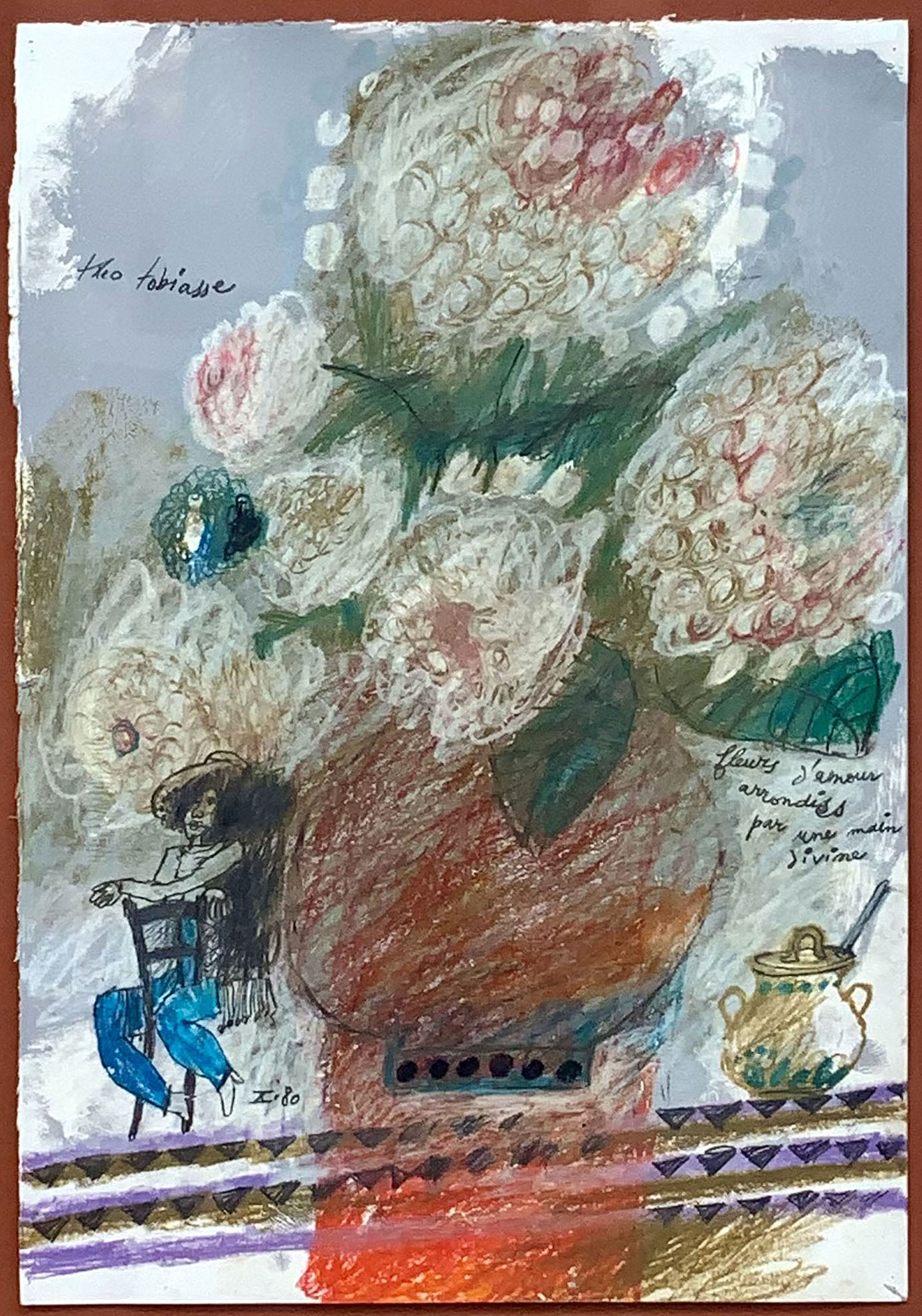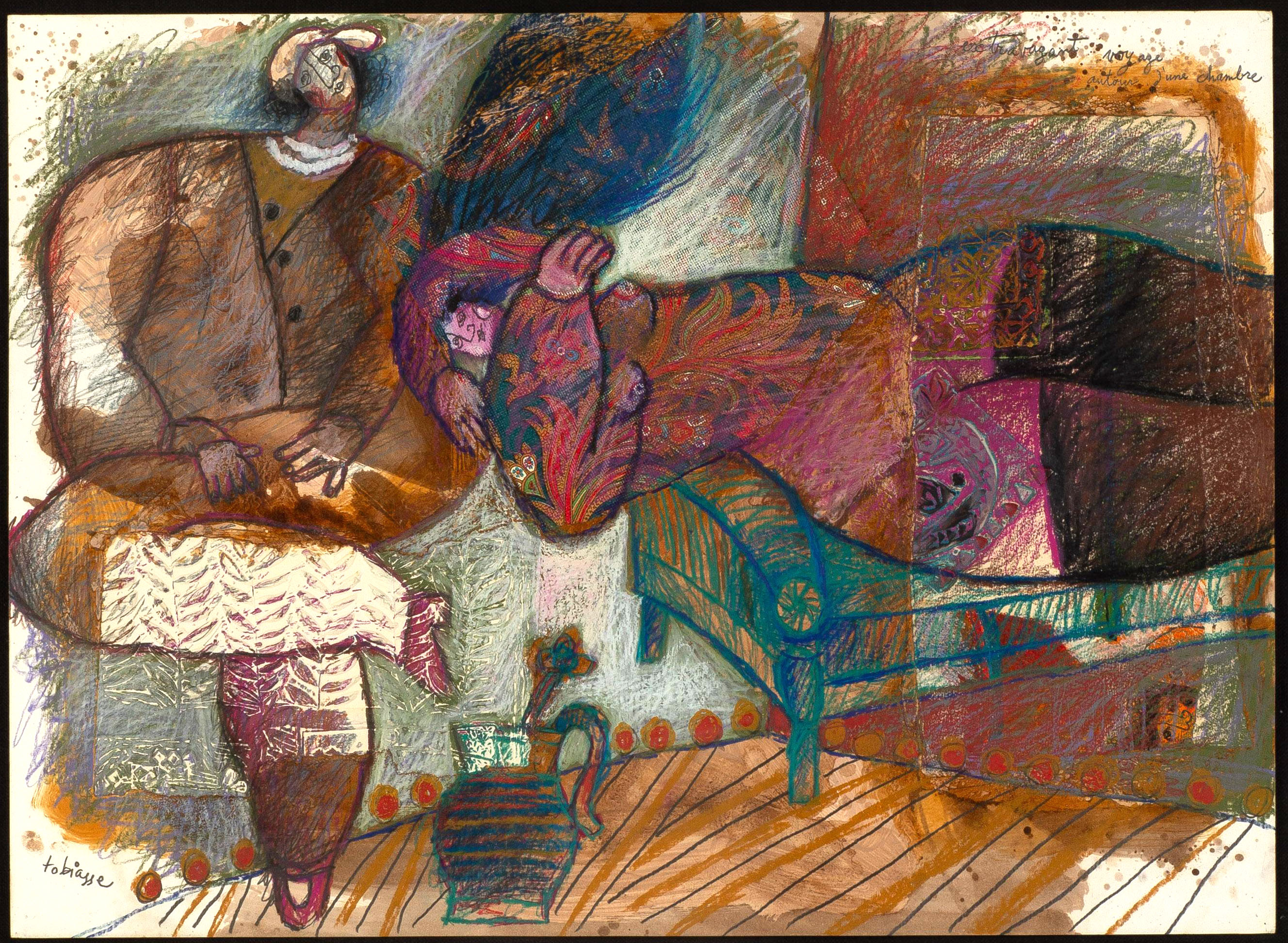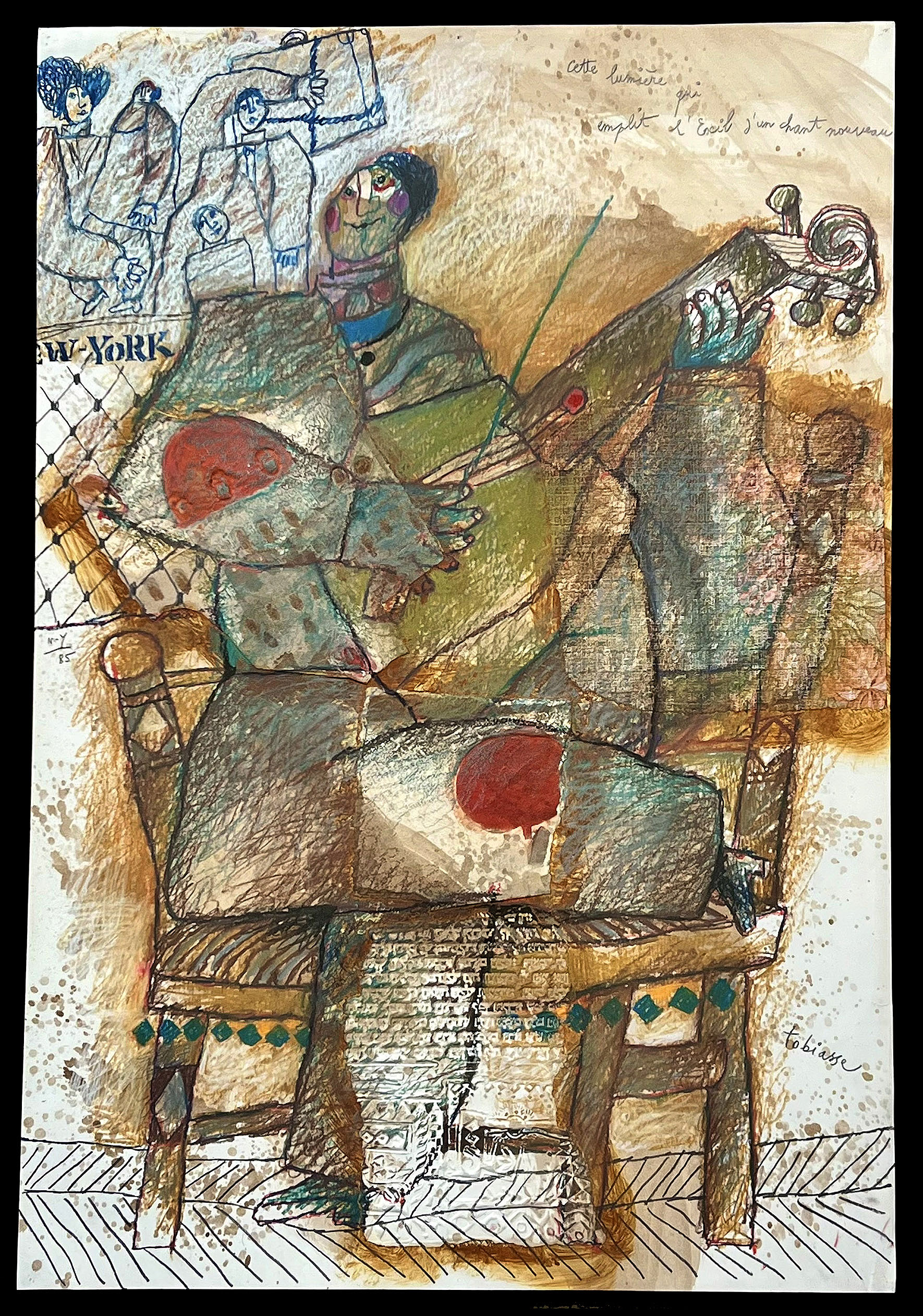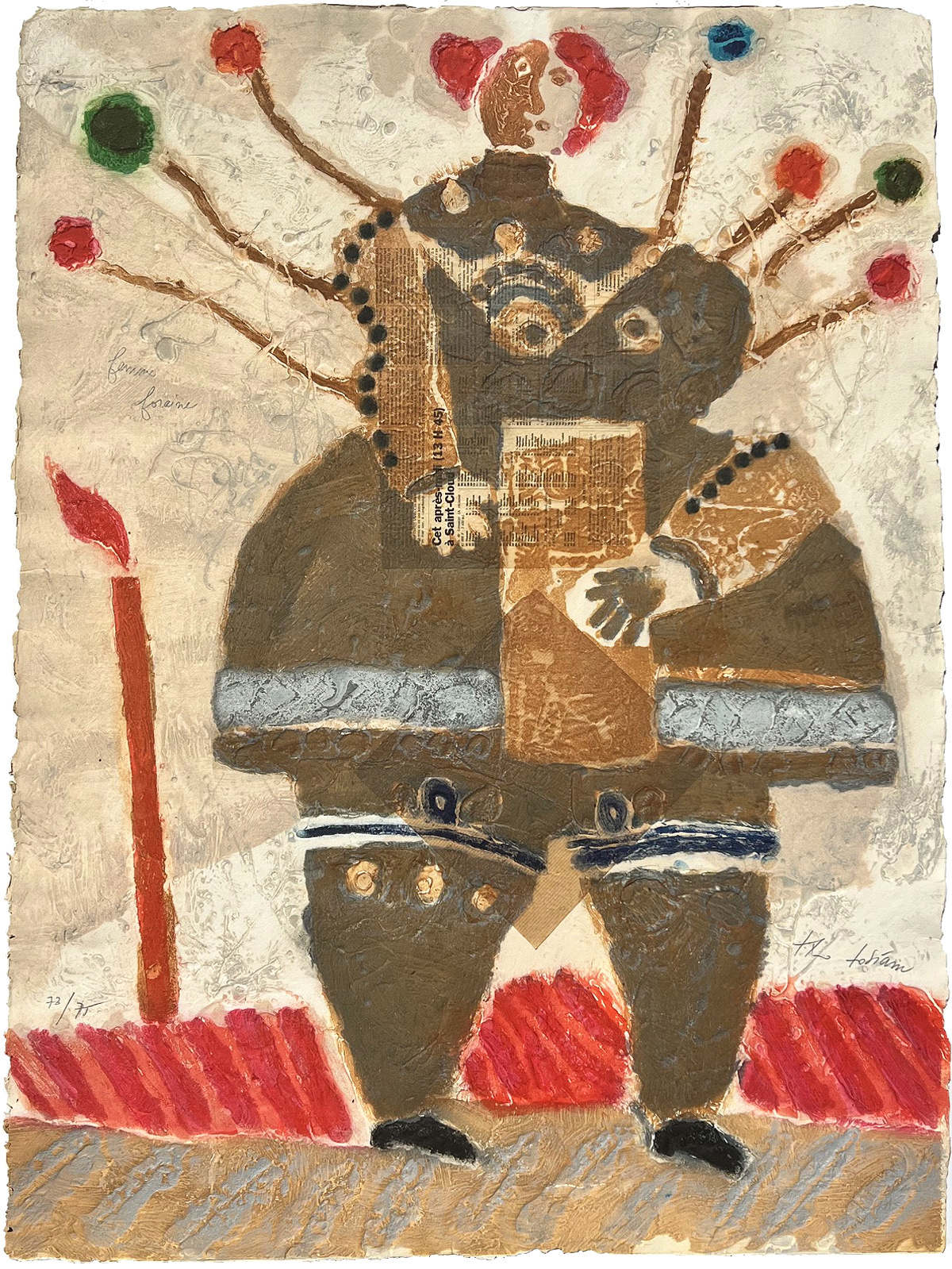Theo Tobiasse (1927-2012)
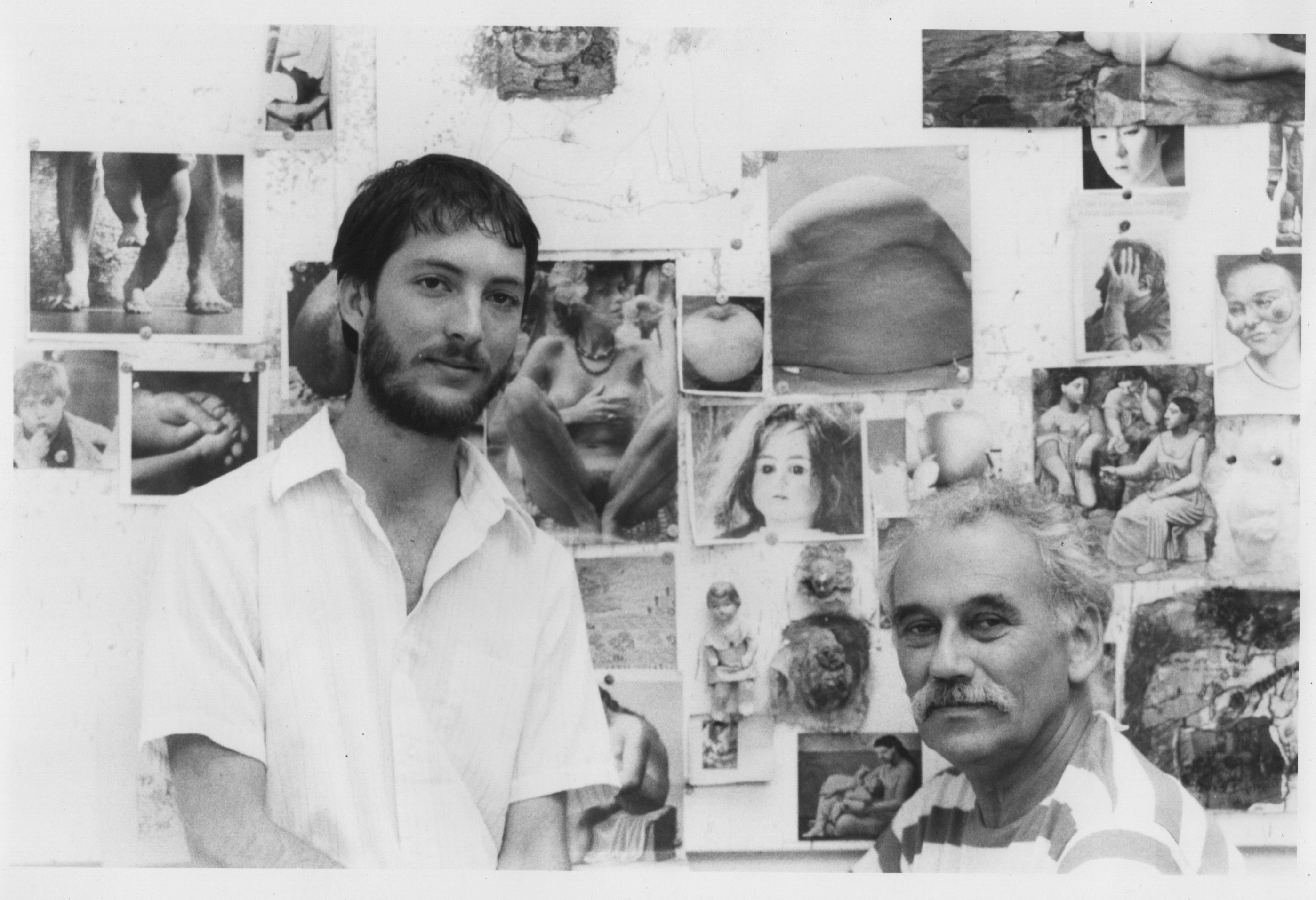
Ken Nahan and Theo Tobiasse in his studio, 1986, St. Paul de Vence, France
Born in Palestine and
brought to Paris as a child, Theo Tobiasse created his earliest drawings before
World War II. After the war, having spent the crucial years of his youth hiding
from the Nazis in a Paris apartment, he became a successful commercial designer
until 1961, when he decided to devote his full attention to painting.
Tobiasse's style of painting is highly sophisticated. His technique is a
painterly blend of surrealism, expressionism, and modern primitivism. His
themes are literary, often biblical, and at times, erotic. His paintings seem
to transcend history - fusing dreams, mythologies, biblical stories and his own
past - into rich metaphors for the world of the present.
An internationally acclaimed artist, Tobiasse's works are included in numerous
private, corporate and museum collections worldwide.
originals
Among Tobiasse’s most compelling works are three original pieces now in my collection, each revealing a deeply personal facet of his life and vision.
Fleurs d’amour arrondies par une main divine (1980) embodies the lyrical, almost mystical quality of Tobiasse’s hand, where blossoms become symbols of tenderness and divine inspiration. Exhibited at Nahan Galleries in New Orleans shortly after its creation, it carries both poetic intimacy and significant provenance.
L’Extravagant voyage autour d’une chambre (c. early 1990s) reflects Tobiasse’s memories of wartime confinement in Paris, when he survived the Nazi occupation hidden in a small apartment. The painting’s theme of imagined journeys within the confines of a room transforms personal history into a universal metaphor for exile, memory, and the resilience of the human spirit.
Cette lumière qui emplit l’exil d’un chant nouveau (New York, 1985) marks Tobiasse’s early years in America. The inscription “NY 85” ties it to his first period living and working in New York, a time of renewal and reinvention. Its title and imagery evoke exile suffused with hope, suggesting light as a source of song and transformation.
Together, these works illuminate Tobiasse’s unique ability to weave autobiography, spirituality, and imagination into powerful visual poetry.
